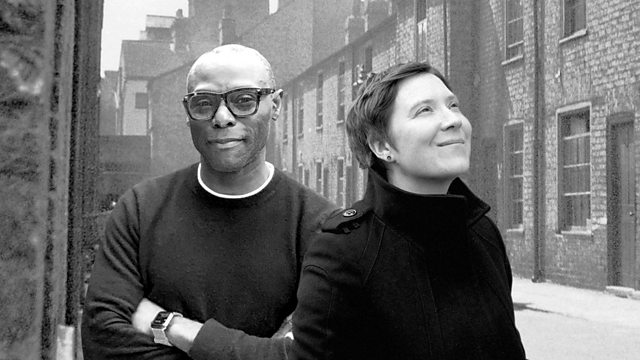Search for a Common Culture
4 Extra Debut. Author Lynsey Hanley and Steel Pulse musician, Mykaell Riley, explore whether the UK ever had a common culture? From 2021.
Author Lynsey Hanley and Mykaell Riley, founding member of the British roots reggae group Steel Pulse, tell the story of the search for a 'common culture'.
They follow its permutations in the post-war era with the rise of ‘the common voice’ and a new wave of documentary making, fiercely negotiated around issues of social class, race and the impact of multiculturalism, to the present.
At a time of huge division and polarisation in civil society, they ask if its time has come again in the digital age.
Writing in post-war Britain, for critics like Raymond Williams, Richard Hoggart, Stuart Hall and others 'culture' meant two things:
* First, a whole way of life and the everyday, not just a series of great works accessed and curated by an elite.
* Second, as a way of sharing the arts and learning with the whole of society, of open access for everyone in a properly civic space.
Lynsey Hanley, who has written on the history of council estates and urban planning, explores how these two ideas were conjoined. 'Common culture' was for the first time inclusive, involving all the strands of everyday living from youth culture to the pub, the football terrace and the cinema. ‘Culture is ordinary’ wrote Raymond Williams in 1958.
The idea of a common culture meant the opening up of 'high' culture too, tied to mass literacy and learning as part of a wider sense of cultural outreach aimed at the British working class. This was boosted by the work of intellectuals like George Orwell and EP Thompson as well as Richard Hoggart’s landmark book 'The Uses of Literacy' which argued for the democratisation of culture and cultivation of learning through what the author called, in a powerful phrase, ‘civic literacy’.
Mykaell Riley builds on this story, of how ‘common culture’ became deeply contested in the 1970s and ‘80s, forged from representations of working-class identity but weaponised around ideas of race.
For the post-Windrush generation of Black British youth the idea of a ‘common culture’ was wrapped around the British flag and harshly policed. Music, especially British reggae groups like Steel Pulse, became part of a cultural fightback - an expression of the new political multiculturalism and proliferation of sub-cultures.
Perhaps there has never been a truly 'common' culture that belongs everyone – that the very idea has a deep ambivalence when used in public life, either championing inclusivity or excluding diversity. But does the first always have to mean the second, can we move beyond this stalemate?
In our rancorous post-Brexit era and a wide sense of fatigue with division always seeming more important than what we could - and perhaps do - share in common, could the idea of common culture be thought again in new, de-toxifying and inventive ways? Or have we just become better at thinking about what separates us than what we have in common, more comfortable with difference than what we share in public space?
Contributors include:
*Director, Ken Loach
* Curator and writer, Aliyah Hasinah
* Critic and author, DJ Taylor
* Ddub poet, Linton Kwesi Johnson
* Director, Terence Davies
* Literary journalist, Suzi Feay
* Singer songwriter, Peggy Seger
* Political journalist, Peter Obourne
* Illustrator and author, Nick Hayes
* Urbanist, Adam Greenfield
* Documentary historian, John Corner
* Director at Byline TV, Caolan Robertson
* A founding commissioning editor for Channel 4, Farrukh Dhondy,
Producer: Simon Hollis
A Brook Lapping production for Â鶹ԼÅÄ Radio 4, first broadcast in March 2021.
Last on
More episodes
Previous
Broadcasts
- Sat 13 Mar 2021 20:00Â鶹ԼÅÄ Radio 4
- Wed 17 Jul 2024 10:00Â鶹ԼÅÄ Radio 4 Extra
- Wed 17 Jul 2024 16:00Â鶹ԼÅÄ Radio 4 Extra
- Thu 18 Jul 2024 00:00Â鶹ԼÅÄ Radio 4 Extra

